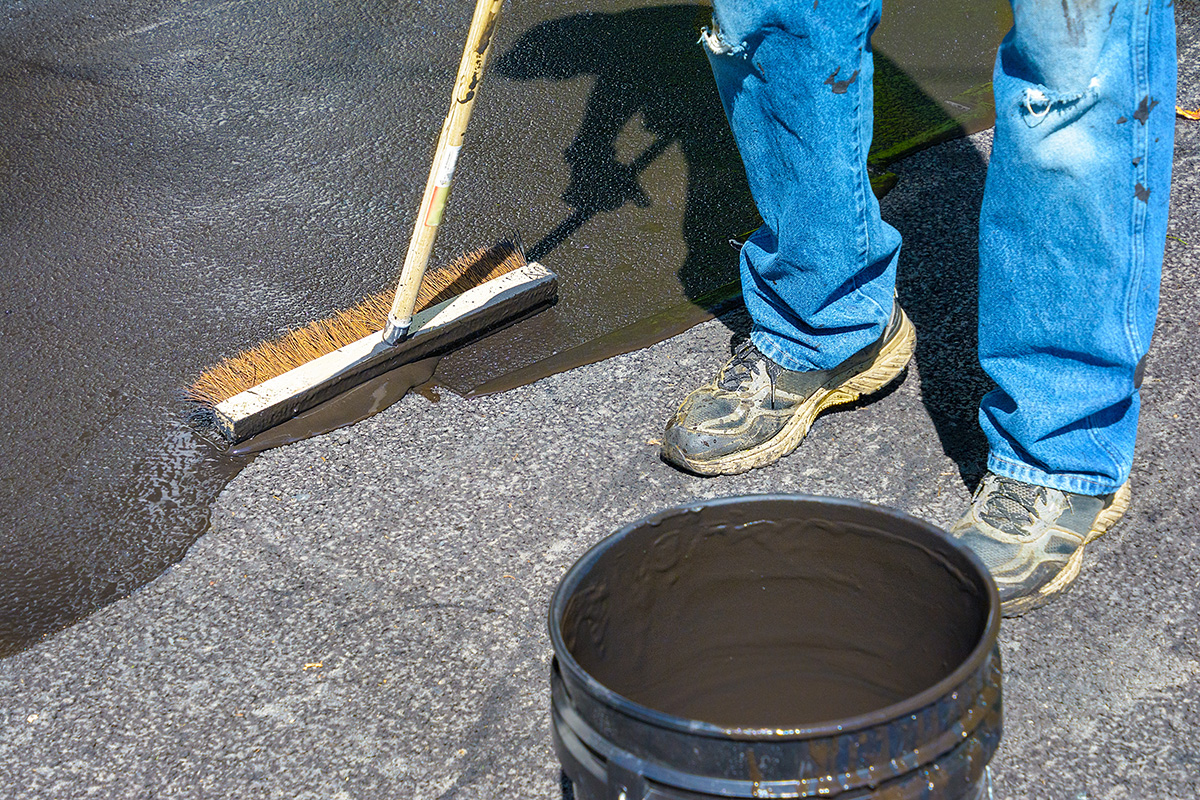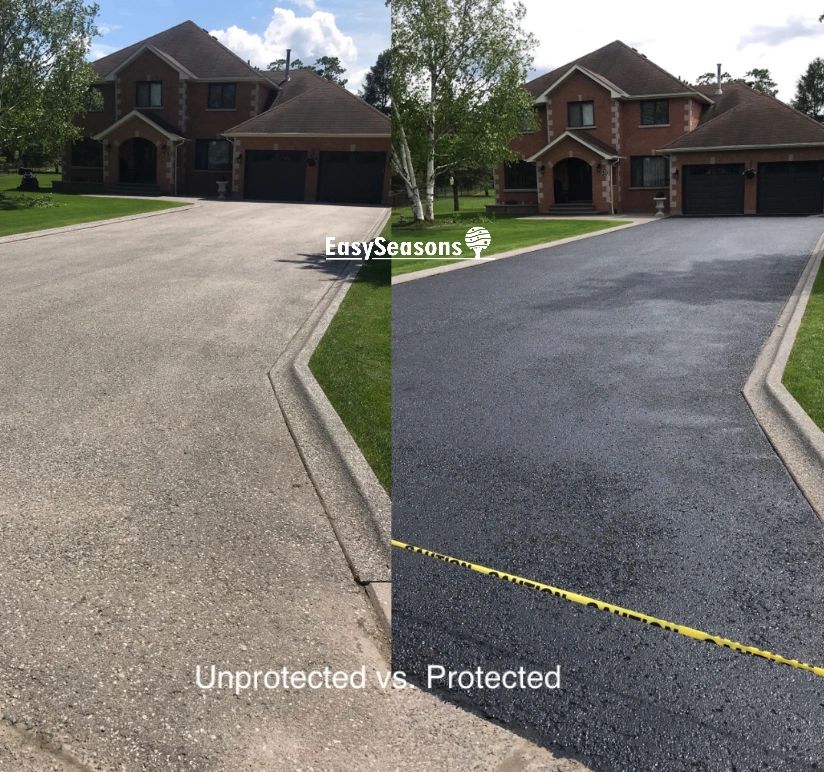Warm Mix Asphalt: A Sustainable Service for Sidewalk
Warm Mix Asphalt (HMA) has emerged as a leading sustainable selection for sidewalk options, supplying a myriad of environmental benefits and ingenious technologies. As the need for green building and construction practices expands, checking out the nuances of HMA's sustainability can offer beneficial understandings into the future of sidewalk services.
Ecological Advantages of Warm Mix Asphalt

In Addition, Warm Mix Asphalt aids to minimize city warm island effects. Its dark color absorbs sunshine, minimizing the quantity of heat mirrored back into the atmosphere contrasted to lighter-colored pavements. This can decrease ambient temperatures in metropolitan locations, decreasing the demand for cooling and inevitably decreasing power consumption.
In enhancement, Hot Mix Asphalt adds to improved stormwater management. Its porous nature permits water to charge and infiltrate the pavement groundwater materials, lowering overflow and the danger of flooding. These ecological benefits make Warm Mix Asphalt a sustainable option for paving roads and freeways.
Energy Effectiveness in HMA Production
Is energy performance an important factor in the production of Warm Mix Asphalt (HMA)? Definitely. Power plays a considerable duty in the production of HMA, impacting both expense and environmental sustainability. One key element of energy performance in HMA production is the use of cozy mix asphalt (WMA) innovations (regrading). WMA enables the blending and positioning of asphalt at lower temperatures compared to standard hot mix asphalt, causing decreased power consumption throughout production. This procedure not only decreases fuel usage yet also reduces greenhouse gas discharges, making it a more ecologically pleasant choice.
Furthermore, improvements in plant innovations have actually led to even more energy-efficient HMA production processes. Modern plants are developed with features like recycled asphalt sidewalk (RAP) processing capacities, reliable burner systems, and boosted insulation, all adding to power cost savings. By maximizing power use in HMA manufacturing, the industry can minimize its carbon footprint while maintaining high-grade pavement products. Power effectiveness is, as a result, an essential factor to consider in making sure the sustainability of Hot Mix Asphalt production.
Recyclability of Hot Mix Asphalt
The recyclability of Hot Mix Asphalt (HMA) is an essential element of its sustainability and long-term environmental effect. HMA is just one of one of the most recycled materials in the USA, with over 100 million lots of redeemed asphalt pavement (RAP) being recycled annually in new pavement construction. Reusing HMA supplies a number of ecological advantages, such as minimizing the need for virgin materials, reducing power usage throughout production, and reducing the amount of waste sent out to landfills.
The procedure of recycling HMA entails crushing the existing sidewalk, squashing it into smaller items, and blending it with new accumulation and asphalt binder to develop a recycled mix. This recycled mix can commonly do as well as and even much better than conventional HMA, while needing fewer resources and producing reduced greenhouse gas exhausts. By incorporating RAP right into new sidewalk jobs, roadway companies can preserve natural sources, lower expenses, and lessen the ecological impact of road building and construction and upkeep activities. Generally, the recyclability of HMA plays a substantial function in advertising sustainable methods within the pavement industry.

Long-Term Performance of HMA
Asphalt sidewalks show toughness and strength over an extended duration, reflecting the lasting efficiency of Hot Mix Asphalt (HMA) The durability of HMA can be attributed to its capability to endure rush hour lots, harsh weather, and the results of aging. Researches have actually revealed that properly designed and correctly constructed HMA pavements can last for 20 years or even more with routine maintenance. The secret to making best use of the long-lasting performance of HMA hinges on using top notch materials, following finest practices in construction, and carrying out reliable upkeep methods. Correct water drainage, routine evaluations, and prompt fixings are important for preserving the architectural integrity of HMA sidewalks in time. Additionally, innovations in HMA technology, such as the usage of polymer-modified binders and cozy mix asphalt, have further enhanced the durability and longevity of HMA sidewalks. By prioritizing high quality building and construction and maintenance practices, HMA continues to confirm itself as a affordable and lasting option for resilient pavement framework.

HMA: Toughness and Sustainability
Demonstrating both longevity and sustainability, Warm Mix Asphalt (HMA) has ended up being a cornerstone in the construction of durable sidewalk facilities - hot mix asphalt. HMA's durability comes from its capacity to withstand heavy lots, harsh weather, and high traffic volumes, making it a trusted selection for roadways, highways, and airport terminal paths. The make-up of HMA, which usually includes accumulations, binder, and filler, plays a vital my explanation role in boosting its long life and resistance to damage
Moreover, HMA's sustainability hinges on its recyclability and energy-efficient manufacturing process. The ability to reuse reclaimed asphalt sidewalk (RAP) in new HMA combinations reduces the demand for virgin materials and minimizes the ecological influence of sidewalk construction and maintenance. Furthermore, the power performance of generating HMA hinges on its reduced mixing temperatures contrasted to various other pavement materials, bring about minimized energy usage and greenhouse gas discharges.
Verdict
Finally, hot mix asphalt (HMA) supplies a sustainable option for pavement with its eco friendly qualities. HMA's recyclability, power effectiveness in production, and long-lasting longevity make it an environmentally friendly selection for road building and construction. By saving natural sources, lowering regrading waste, and decreasing greenhouse gas discharges, HMA plays an essential function in advertising sustainability in framework advancement. Its capability to mitigate metropolitan warm island results further underscores its value in developing durable and environmentally mindful sidewalk systems.
HMA is one of the most recycled products in the United States, with over 100 million bunches of recovered asphalt pavement (RAP) being recycled each year in brand-new sidewalk building and construction.The procedure of reusing HMA involves milling the existing sidewalk, squashing it into smaller sized items, and blending it with new accumulation and asphalt binder to create a recycled mix.Asphalt sidewalks demonstrate durability and durability over an extensive period, showing the lasting performance of Hot Mix Asphalt (HMA) Furthermore, advancements in HMA modern technology, such as the use directory of polymer-modified binders and cozy mix asphalt, have even more enhanced the resilience and longevity of HMA pavements. The capacity to reuse redeemed asphalt pavement (RAP) in brand-new HMA combinations minimizes the demand for virgin products and lessens the ecological impact of sidewalk construction and upkeep.